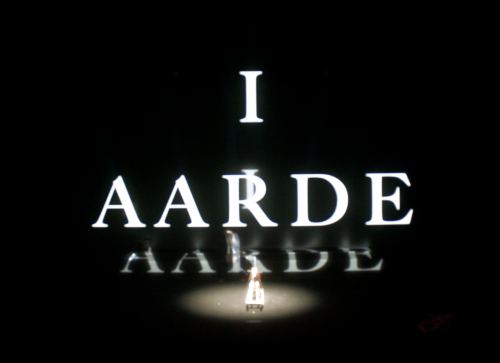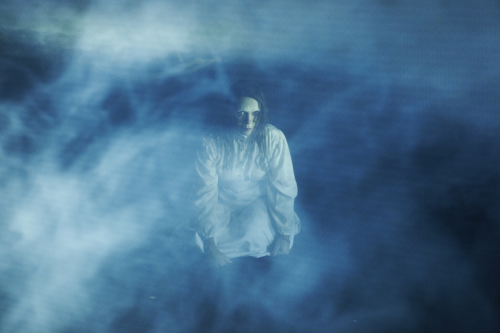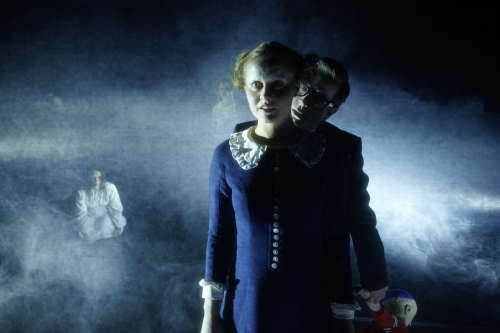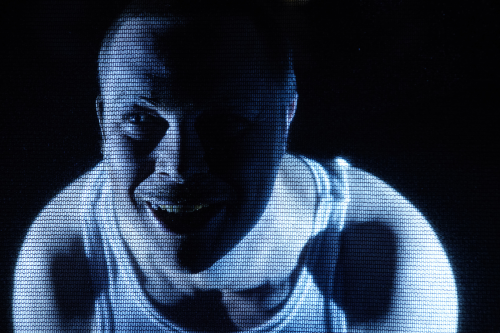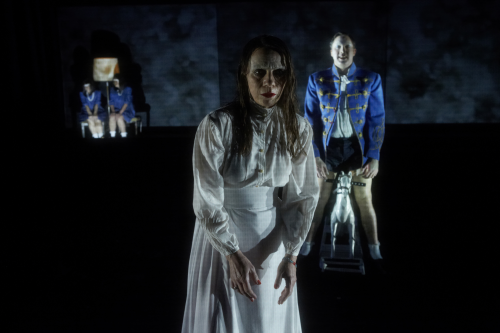User:Lena Mueller/Lena Mueller Little Eyolf 2012: Difference between revisions
Lena Mueller (talk | contribs) (→Essay) |
Lena Mueller (talk | contribs) |
||
| Line 28: | Line 28: | ||
* Andrew, Malcolm, Landscape and Western Art (Oxford: Oxford Uninversity Press 1999). | * Andrew, Malcolm, Landscape and Western Art (Oxford: Oxford Uninversity Press 1999). | ||
* Moi, Toril, Henrik Ibsen and the birth of Modernism (Oxford: Oxford University Press 2006). | * Moi, Toril, Henrik Ibsen and the birth of Modernism (Oxford: Oxford University Press 2006). | ||
Revision as of 11:53, 21 May 2012
Little Eyolf
Description
The following question inspired my graduation project: how can I create the experience of an outside space within a theatre? I aimed at the illusion of an open place, one that extends beyond any visible walls. My research’s main practical outcome is the set and video design for a theatre production of Henrik Ibsen’s Little Eyolf (1894), (premiere on 3 May 2012 at Het Nationale Toneel in The Hague). My research assesses how in live performance, digital video technology influences the perception of space. My starting point was to create a room that represents a state of mind; actors were to be vague figures in an apparently endless landscape of fog and air. With the help of projections, scrims, and artificial fog, I established the impression of a scene set outside, yet paradoxically also on location within a human mind rather than inside a theatre. My aim was to create a three dimensional space for images, combining layers of projection within an amorphous substance like fog. Rather than a conventional flat screen, I sought the illusion of depth and perspective on a nebulous body. The audience experience the tension between the scale of the human frame and the scale of the space around them. The collaboration intrinsic to theatre is essential to my working practice. Therefore my research entails analysing the results of the cooperation between different professions such as stage design, sound design, light design, directing, and acting. As this particular theatre production aimed at bringing natural and universal powers on stage, I was especially interested to see how all crafts combine together to create one entity. Like cinema, live performance takes place in an empty black space; my fascination with this fact forms the subject matter of my designs. Looking back on the other theatre designs I made during the Master Course at Piet Zwart Institute, I will show how my research into cinematic language influences my approach as a designer.
Media
Photos
Video
Essay
- Thesis in progress click here to download
Bibliography
- Rosenblum, Robert, Modern Painting and the Northern Romantic Tradition: Friedrich to Rothko (London: Thames and Hudson, 1975)
- Burke, Edmund, “A Philosophical Enquiry into the Sublime and Beautiful and Other Pre-Revolutionary Writings” (London: Penguin Books, 1998)
- Lyotard, Jean-Francois, „Newman: The Instant“ in The Inhuman (Stanford: Stanford University Press, 1988)
- McFarlane, James, ed., Henrik Ibsen: Penguin Critical Anthologies (Harmondsworth: Penguin, 1970).
- Merx, Sigrid, “Swann’s way: video and theatre as an intermedial stage for the representation of time” in: Ed. Freda Chapple and Chiel Kattenbelt Intermediality in theatre and performance (Amsterdam: Rodopi 2006) 67-80.
- Andrew, Malcolm, Landscape and Western Art (Oxford: Oxford Uninversity Press 1999).
- Moi, Toril, Henrik Ibsen and the birth of Modernism (Oxford: Oxford University Press 2006).
Additional Information
- One page itemised budget estimate

